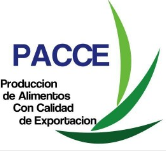As disputes regarding fishing rights and indigenous land use agreements continue to make headlines, a recent case involving the withdrawal agreement fishing rights and the Wagyl Kaip and Southern Noongar Indigenous Land Use Agreement has once again brought attention to this complex issue.
The controversy arose when it was discovered that the withdrawal agreement, which aimed to regulate fishing rights post-Brexit, had potential implications on the rights and territories of indigenous communities covered under the Wagyl Kaip and Southern Noongar Indigenous Land Use Agreement.
Residents and activists expressed concerns over the impact the withdrawal agreement could have on the traditional fishing practices and livelihoods of indigenous communities. The agreement failed to address the unique cultural and environmental aspects that need to be considered when it comes to fishing rights in these areas.
While the withdrawal agreement initially intended to secure fishing rights for UK fleets, it failed to acknowledge the significance of indigenous land use agreements and the need for their proper recognition and protection.
This incident has reignited the debate on the relationship between international agreements and indigenous rights. It raises important questions about accountability, consultation, and the need for a balanced approach that respects the traditions and rights of indigenous communities while also addressing the concerns of other stakeholders.
In a similar vein, questions have been raised about the rights and obligations of contract employees, particularly regarding the requirement of providing notice before termination. The issue of whether contract employees have to give notice has become a subject of legal scrutiny in many jurisdictions.
Employment laws worldwide vary on this matter, with some jurisdictions mandating a notice period, while others do not. The termination of an agreement without proper notice can lead to legal repercussions for employers who fail to comply with relevant employment laws.
Furthermore, language barriers and misunderstandings can also complicate matters when it comes to translating contracts and agreements. The term “termination of agreement prijevod” (translated termination of agreement) highlights the importance of accurate translations in legal documents to avoid any confusion or potential disputes.
Additionally, violations of a “no contact release agreement” (ORS violation of no contact release agreement) can have serious consequences for individuals involved. Such violations can lead to legal actions and the imposition of penalties.
Religious texts have also explored the concept of agreement. For instance, the Bible features a verse that states, “when two or more are in agreement, anything they ask will be done for them” (when two or more are in agreement Bible verse). This passage emphasizes the power and impact of consensus and unity.
Legal jargon can often be confusing, and one frequently encountered term is “unliquidated damages,” frequently used in contracts. Understanding what unliquidated damages mean in a contract is crucial for parties involved to ensure they comprehend their rights and responsibilities.
Another key aspect in any agreement is its execution. Proper agreement execution is essential to make the terms legally binding and enforceable. Parties involved should follow the necessary steps to ensure a smooth and valid execution of the agreement.
In the realm of landlord-tenant relationships, having a solid contract in place is vital to protect the rights and obligations of both parties. In the UK, the landlord-tenant contract UK provides a legal framework that promotes fair and harmonious tenancy agreements.
Finally, prenuptial agreements have gained popularity as a way to protect assets and clarify expectations in the event of a divorce. In Leicester, couples may consider a prenuptial agreement Leicester to safeguard their interests and ensure a smooth resolution in case of a marital breakdown.
As various legal matters continue to surface, it is crucial to address these issues with careful consideration of all parties involved, including indigenous communities, employees, translators, religious perspectives, and contractual obligations. By doing so, we can foster a more inclusive and equitable legal landscape.
 orcid.org/0000-0001-6003-7487
orcid.org/0000-0001-6003-7487







 - ULA
- ULA Guia de Alta Montaña
Guia de Alta Montaña Industrial Chemistry – Texas A&M
Industrial Chemistry – Texas A&M Laboratorio FIRP
Laboratorio FIRP Materials Learning – Cambridge Univ.
Materials Learning – Cambridge Univ. Petroleum Refining – Colorado Univ.
Petroleum Refining – Colorado Univ. COLMEQUIM
COLMEQUIM BIOVEN
BIOVEN CARPA
CARPA GUMMYN
GUMMYN PACCE
PACCE PharmaQuim
PharmaQuim PRODELIM
PRODELIM WATERFRESH
WATERFRESH ALITOS
ALITOS Biocosmetiq's
Biocosmetiq's E.B.T. Bebidas y Licores
E.B.T. Bebidas y Licores GELES BETA C.A
GELES BETA C.A NatuVie
NatuVie Productos de Gel de Aloe Vera
Productos de Gel de Aloe Vera Determer
Determer PECTIPRODS Mérida
PECTIPRODS Mérida PETROING C.A.
PETROING C.A. Soft&Pure
Soft&Pure ALQUIVEN C.A.
ALQUIVEN C.A. Deshoil C.A.
Deshoil C.A. Ecopetroliq’s
Ecopetroliq’s Pequinoil S.A
Pequinoil S.A PetroCrack CA
PetroCrack CA Petrol C.A.
Petrol C.A. REFILUB
REFILUB